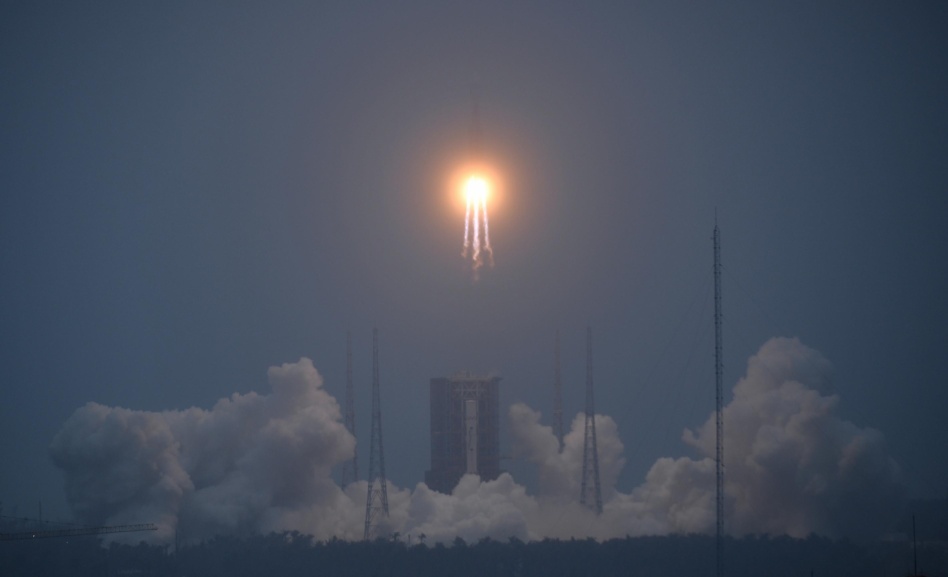Necessary national security safeguard, or out-of-touch barrier to communication with a leading space power?
That was the question at the heart of a debate last week on whether the Wolf Amendment is still in America’s best interest, almost 15 years after it became law. The event, hosted by The Aerospace Corporation and George Washington University’s Space Policy Institute, included officials debating whether the amendment should be repealed—and more broadly, what US cooperation with China in orbit should look like.
What is it? The Wolf Amendment—so named because it was backed by former Rep. Frank Wolf (R-VA)—became law in 2011 as part of that year’s appropriations bill for NASA. The language prohibits both NASA and OSTP from using any money to “develop, design, plan, promulgate, implement, or execute a bilateral policy, program, order, or contract of any kind of participate, collaborate, or coordinate bilaterally in any way with China or any Chinese-owned company.” The act also bars using any money to host Chinese visitors at NASA facilities.
Though the act includes a way for agencies to get around the prohibition by securing prior approval from Congress, in reality, the act has completely stalled any talks of cooperation between the US and Chinese space agencies.
In favor of maintaining: Dean Cheng, a nonresident senior fellow at the Potomac Institute for Policy Studies, said the Wolf Amendment is still needed, and critical to protecting the US. He argued that:
- The Chinese do not value transparency like the Soviets did, making comparisons to US-Soviet space cooperation during the Cold War irrelevant.
- How would the logistics of communicating with China work amid the threat of Beijing’s cyber attacks? “Is anyone planning to go to China and bring their own laptop or cell phone?” Cheng questioned.
- Even on civil or scientific priorities, the Chinese military is intertwined with the country’s space program—including work being done at prominent universities.
In favor of repealing: Dan Hart, a nonresident senior fellow at the Atlantic Council, said that the Wolf Amendment no longer serves the interests of the US. He argued that:
- The US already has regulations like ITAR to protect agencies in international collaboration, and the amendment is “redundant to more effective measures already in place.”
- US industry—from Apple, to Tesla, to Nvidia—is already working with China, so the Wolf Amendment is out of touch with today’s reality.
- Cooperation in space with China for civil and scientific space priorities could open the door for diplomatic conversations, amid high terrestrial tensions. The Wolf Amendment eliminates the possibility of subtle engagement and gradual cooperation towards the goal, instead requiring a major policy shift to even work on small projects.
Next steps: This debate may be happening in a think-tank setting, but there’s no evidence it’s happening on Capitol Hill. Leaders of the space committees in both the House and Senate have supported the Wolf Amendment, and Congress has other things on its plate—including finding a way to pass budget bills, and avert another shutdown in a little over two months.





